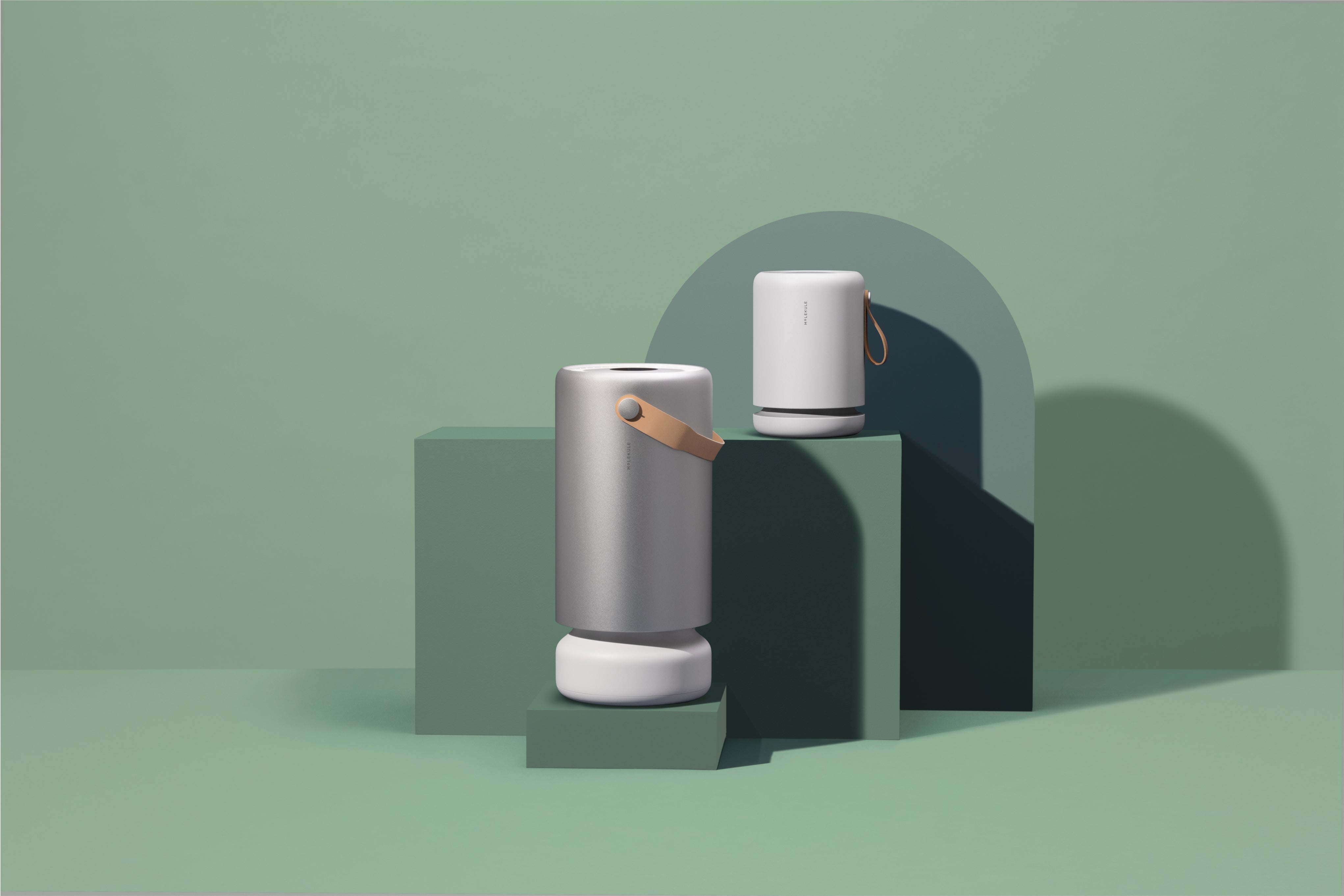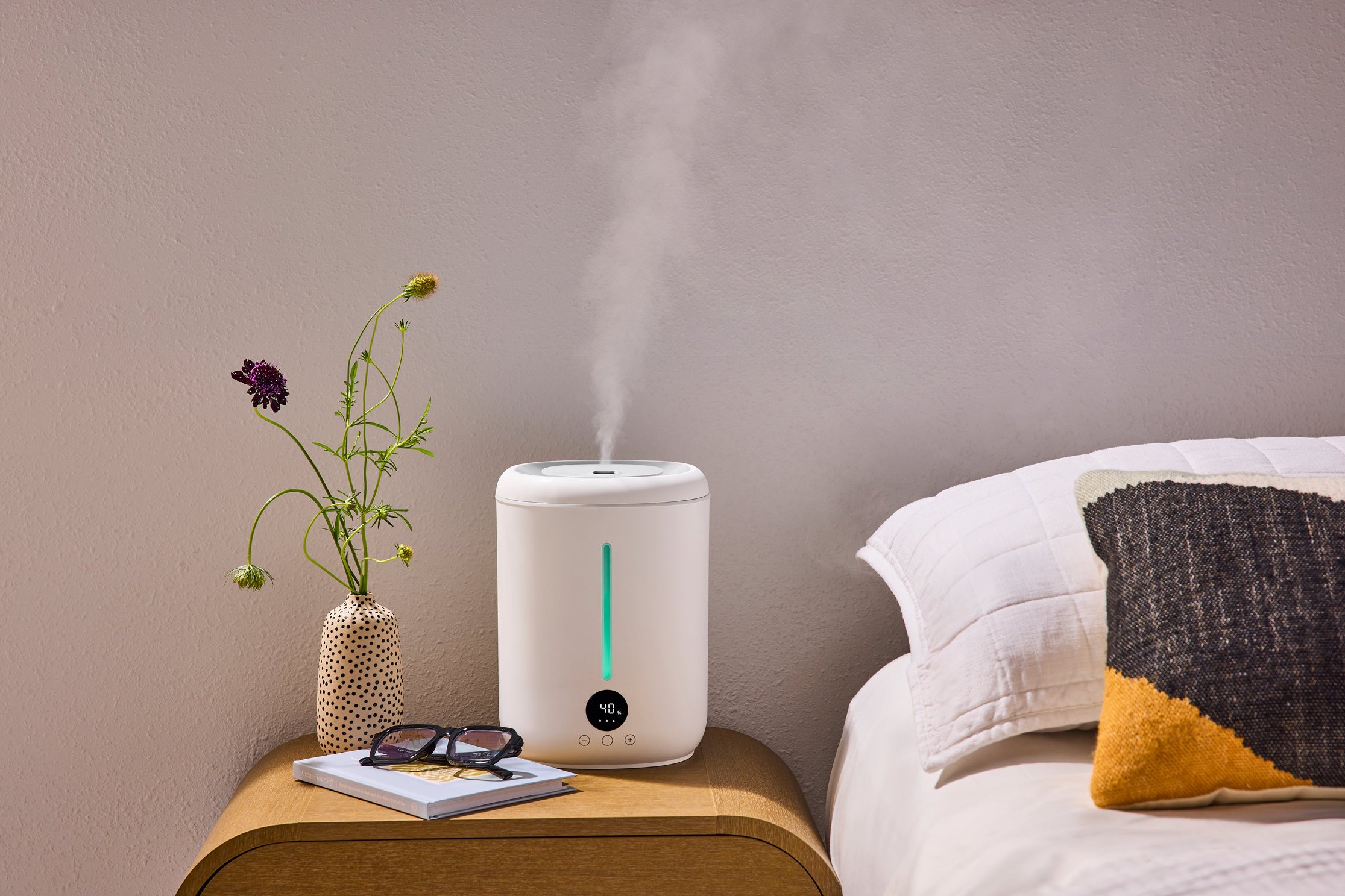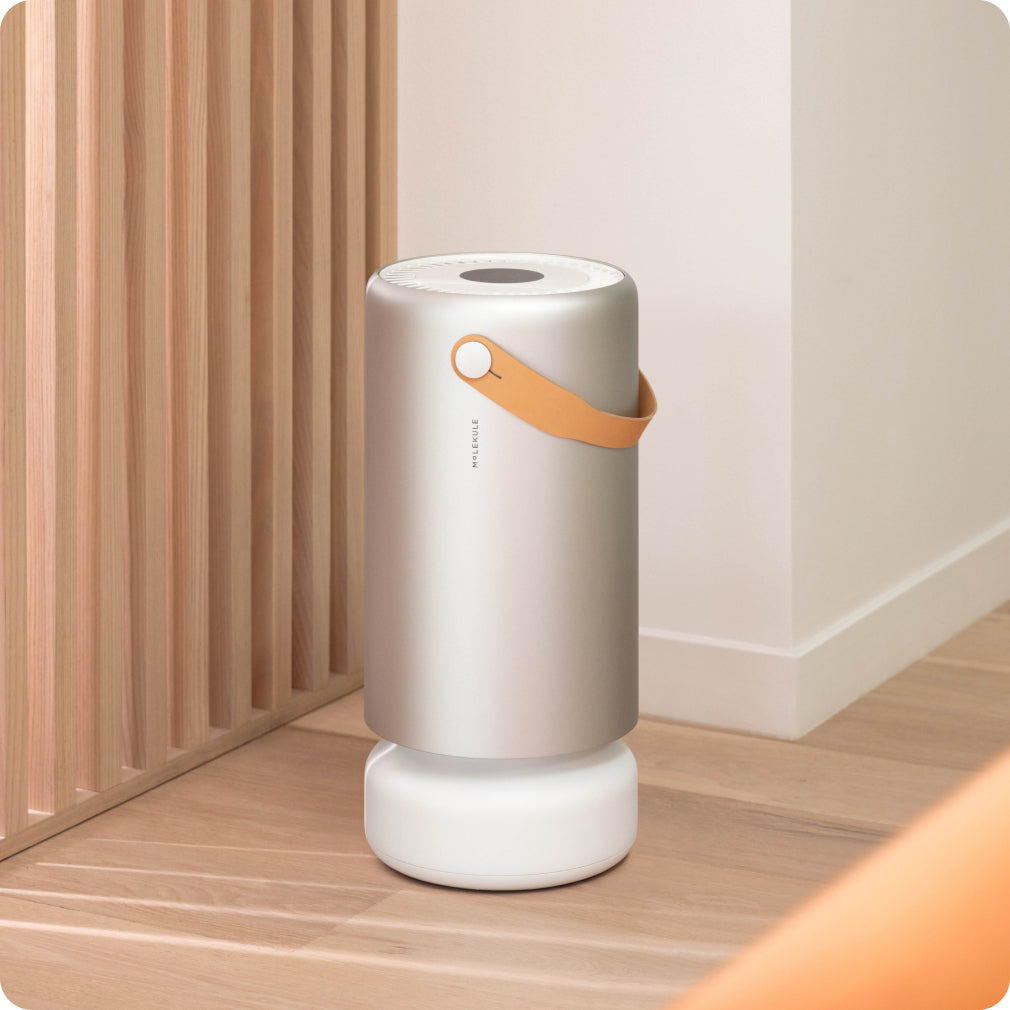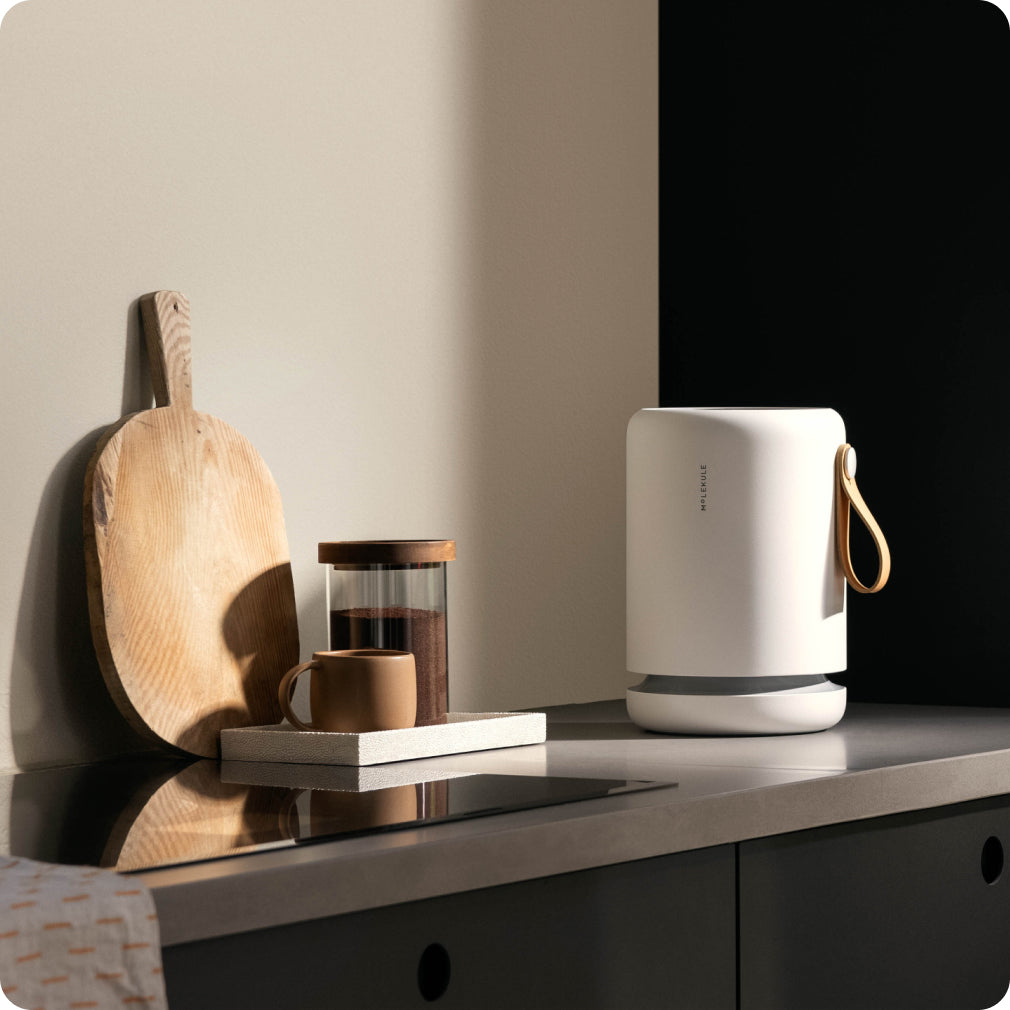Sleeping with the window open can bring in fresh air and help regulate room temperature, but it may also expose you to allergens, outdoor pollutants, noise, and potential safety risks. Whether this habit is beneficial or harmful in the long run depends largely on your environment, health conditions, and how you manage those trade-offs.
Many people turn to air purifiers as a way to enjoy cleaner indoor air without relying solely on open windows, especially in areas with high pollen counts or pollution. Below is a complete breakdown of the pros and cons of sleeping with the window open, plus strategies for optimizing your sleep and overall health.
Key Takeaways
-
Fresh air from open windows lowers CO₂ and indoor pollutants, supporting better sleep and daytime alertness.
-
Risks include pollen, smoke, traffic pollution, noise, temperature fluctuations, and security concerns.
-
Long-term health impacts depend on location, air quality, pollen counts, and personal sensitivities.
-
Best practice: combine natural ventilation with the benefits of air purifiers for optimal results.
-
Molekule offers advanced air purification systems that ensure clean, safe air without the drawbacks of open windows.
Is Sleeping With the Window Open Good or Bad?
The answer is context-dependent. For people in areas with clean outdoor air, minimal allergens, and low noise, open windows may improve sleep quality and overall health. But for urban residents, allergy sufferers, or those worried about safety, the long-term risks may outweigh the benefits.
Benefits of Sleeping with the Window Open
Better Ventilation & Air Quality
Open windows can lower indoor carbon dioxide levels and improve oxygen flow. A 2015 study published in “Indoor Air” found that fresh air during sleep improves subjective sleep quality and morning alertness. For many, this simple practice prevents morning headaches and grogginess. However, if outdoor air is poor, a home air cleaner may be a safer alternative.
Cooling & Comfort
Natural airflow cools the bedroom, which is essential for melatonin release and circadian rhythm balance. Cooler temperatures (around 60–67°F or 16–19°C) align with optimal sleep environments, making open windows helpful in summer months. For those sensitive to temperature swings, an air purifier for the bedroom can regulate your indoor air quality while maintaining your comfort.
Psychological Refreshment
Many sleepers describe a fresher feeling in the morning after sleeping with the windows open, citing reduced stuffiness and improved breathing. This perceived benefit reinforces a positive sleep environment, even if the objective health impacts vary.
Where Sleeping with the Window Open Falls Short
Allergens & Outdoor Pollutants
If you live near traffic or in pollen heavy regions, open windows can worsen daytime and nighttime allergies, asthma, and respiratory problems. Pollen and volatile organic compounds (VOCs) can enter freely, creating long-term irritation.
A safer choice is using air purifiers for VOCs that actively filter chemical pollutants and allergens, and reduce household dust that’s airborne.
Noise Disruption
Urban noise, traffic, or barking dogs may not fully wake you, but they can trigger stress responses that disrupt deep sleep cycles. Over time, this increases cardiovascular strain and reduces overall sleep quality. A sleep friendly purifier ensures clean air without sacrificing peace and quiet. Learn where to put your air purifier for the best nighttime results.
Temperature Fluctuations & Illness
Cold drafts in winter can disrupt sleep and even worsen symptoms for those with colds or respiratory issues. Unlike open windows, air purifiers keep your air clean year-round without exposing you to unpredictable outdoor temperatures.
Security & Insects
Ground-floor residents risk security breaches or pests entering through open windows. Even with screens, mosquitoes or bugs can slip in, increasing discomfort and potential health risks.

Best Practices to Balance the Benefits and Risks
-
Partially open windows: Limit exposure by cracking the window slightly instead of fully.
-
Use security screens: Keep insects and intruders out.
-
Monitor air quality: Use CO₂ monitors and pair with an air purifier for consistent safety.
-
Time ventilation: Open windows in the evening before bed to refresh air, then close when sleeping.
-
Layer bedding: Adjust blankets to handle fluctuating temperatures.
-
Noise management: Earplugs or white noise machines help if you must leave windows open.
Optimizing Your Sleep Environment
Whether you choose to sleep with the window open or closed, creating the right bedroom environment plays a major role in how restorative your rest will be.
-
Clean, well-circulated air is essential, which is why many experts recommend pairing natural ventilation with an air purifier to reduce allergens, pollutants, and stagnant air. This balance ensures you get the benefits of freshness without the drawbacks of outdoor irritants.
-
Temperature is another key factor. A cooler bedroom between 60–67°F (16–19°C) supports melatonin production and healthy circadian rhythms, while consistent airflow prevents stuffiness.
-
Bedding choices also make a difference — hypoallergenic covers for pillows and mattresses help limit dust mite exposure, while breathable fabrics regulate body heat throughout the night.
-
Other elements, such as limiting noise and blocking out excess light, contribute to deeper, uninterrupted sleep.
-
Blackout curtains or eye masks, paired with white noise machines or fans, can counteract the disruptions that sometimes come with open windows.
When these strategies are combined — air purification, temperature control, allergen reduction, and sensory management — you create an environment that supports deeper, healthier, and more consistent sleep. (Learn how to make your room smell fresh for an even better sensory experience.)
Conclusion
Sleeping with your window open has clear benefits — fresh air, improved ventilation, and a cooler room — but it also introduces allergens, pollutants, noise, and safety risks. For long-term health, a controlled approach works best: open windows when conditions are favorable, and rely on advanced air purification technology when they’re not. By doing so, you enjoy the freshness of outdoor air while protecting yourself from its downsides.
If you’re trying to decide between an air purifier vs a vacuum for dust and pollen management, the answer is that the two methods are complementary; implement both and then stick to a routine.
Frequently Asked Questions
Is sleeping with the window open safe in winter?
It may cause drafts that disrupt sleep and increase chances of waking congested. Consider closed windows with sleep-friendly purifiers instead.
Can it make me sick?
Open windows don’t directly cause illness, but drafts and allergens can weaken immunity and worsen symptoms if you’re already sick.
Should city dwellers leave windows open at night?
Not recommended due to noise, pollution, and safety risks. Air purifiers offer a healthier alternative.
How do I reduce allergy triggers if I sleep with windows open?
Use pollen screens, clean bedding frequently, and consider purifier maintenance supplies to supplement protection.
What’s the healthiest option overall?
Combining occasional ventilation with advanced air purification systems ensures long-term benefits without major drawbacks.







